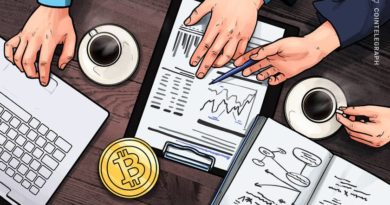US central banker urges digital dollar development
FOMC member Robert Kaplan believes the Fed should prioritize creating a digital dollar.
President of the Dallas Federal Reserve Robert Kaplan believes the US central bank should begin work on a digital currency immediately, a clear indicator that some policymakers view this as an urgent matter.
Speaking Tuesday at a virtual conference hosted by Bloomberg, Kaplan reportedly said:
“It is critical that the Fed focuses on developing a digital currency in the coming months and years.”
The central banker’s remarks were part of a broader discussion on the economy and fiscal policy.
Kaplan is a member of this year’s Federal Open Market Committee (FOMC), the organization tasked with setting monetary policy. The 2020 Committee slashed interest rates to record lows in March as part of a synchronized policy response to Covid-19. Kaplan and the rest of the FOMC have been instrumental in flooding the market with liquidity since Sept 2019, when irregularities in the overnight repo market caused short-term interest rates to spike.
Blockchain technology is certainly on policymakers’ radar. Last month, Fed Chairman Jerome Powell said that 80% of central banks around the world are exploring the potential utility of a CBDC. While the Fed has given no indication of whether it will pursue a digital dollar, it has deployed economists to explore the subject in greater detail.
On Monday, the Fed released a literature review of central bank digital currencies, or CBDCs, to explore the impact of a digital dollar on commercial banking and monetary policy. The review concluded by recommending additional research be devoted to exploring the “intrinsic” value drivers of a government digital currency.
Back in August, the central bank released a full-length research report comparing a digital dollar with other payment methods.
Although the idea of a CBDC is scoffed at by proponents of truly decentralized digital currencies like Bitcoin, the digital dollar is believed by some to be the natural progression of a cashless society. It may assist governments in supporting financial innovation, boosting payment functionalities and supporting greater financial integration worldwide.




